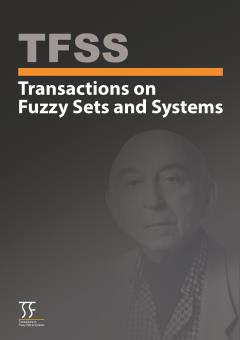Special Issue on “Granular Computing” Dedicated to Prof. Witold Pedrycz
Special Issue on “Granular Computing” Dedicated to Prof. Witold Pedrycz

Special Issue on “Granular Computing” Dedicated to Prof. Witold Pedrycz
Granular Computing (GC) is a computing paradigm that processes complex information units—information granules. Essentially, information granules are created by abstracting data and deriving knowledge from information. Information granules are ubiquitous. We often use time granules (seconds, months, years). We granulate images; millions of pixels processed individually by computers appear to us as granules representing physical objects. In natural language, we work based on granules of words that become crucial units to facilitate interaction and communication between people. Intuitively, we sense that information granules are at the heart of all our perceptual activities. Over time, several formal frameworks and tools have been proposed that focus on processing specific information granules. Interval analysis, rough sets, and fuzzy sets have all played important roles in the representation and processing of knowledge. Consequently, information granulation and information granules have appeared in numerous application domains. The well-known ideas of rule-based systems are based on information granules.
Topic in this special issue include, but are not limited to:
- Granular Computing and Decision-Making.
- Granular Computing and Optimization.
- Granular Computing and Intelligent Systems.
- Granular Computing and Machine Learning.
- Granular Computing and Approximate Reasoning.
- Granular Computing and Multi-Valued Logic.
- Granular Computing and Dynamic Systems.
Editors:
Prof. Tofigh Allahviranloo, Research Center of Performance and Productivity Analysis, Istinye University, Istanbul, Türkiye.
Prof. Mehran Mazandarani, Dep. of Mechanical and Control Engineering, Shenzhen University, Shenzhen, China.
Dr. Sovan Samanta, Dep. of Mathematics Tamralipta Mahavidyalaya (Vidyasagar University) Visiting Professor, Istinye University, Istanbul, Türkiye.
(Articles should only be sent to the editorial office electronically via https://sanad.iau.ir/Journal/tfss. If you have any problems, please contact us: tfssiauba@gmail.com)
Attention: When submitting the article, authors should note in the email that this article refers to the “Special issue in honor of Prof. Witold Pedrycz”.
(Submission Deadline: June 2025)
| Save as PDF | |


